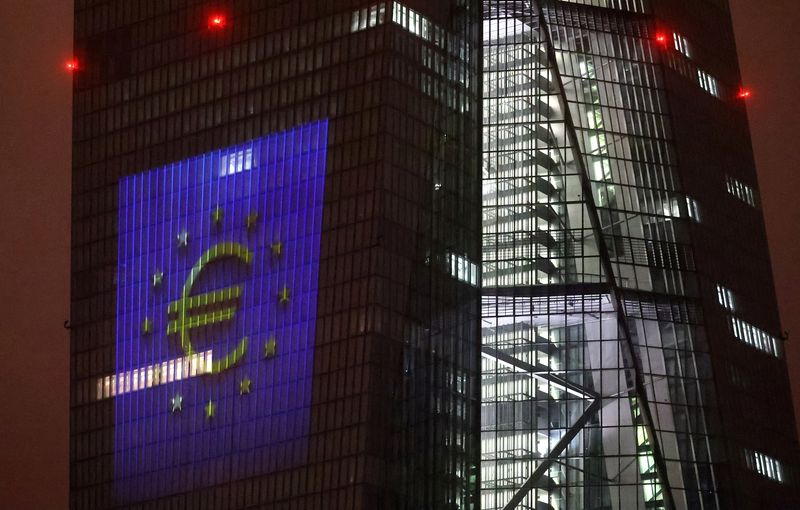By Geoffrey Smith
Investing.com -- The European Central Bank is on the verge of raising interest rates for the first time in a decade when its policy-making council meets in July, analysts said after reviewing the accounts of the last meeting.
"A rate hike in July is no longer uncertain, the only uncertainty is whether it will be 25bp or 50bp," said ING analyst Carsten Brzeski after the ECB published its account earlier on Thursday.
The accounts, which correspond to the Minutes of Federal Reserve policy meetings, acknowledged that inflation had reached a level that threatened its longer-term credibility, flagging the risk that the public's expectations for inflation may rise and drive workers to press for ever-higher wages to compensate.
Acting too late, the accounts argued, “might have high economic, financial stability and credibility costs if the Governing Council were forced to tighten more aggressively at a later stage in order to re-anchor inflation expectations.”
While the Eurozone, in contrast to the U.S., was relatively restrained with its fiscal stimulus during the pandemic, that still hasn't stopped consumer prices rising at their fastest rate in the euro's 23-year lifetime, hitting 7.5% in March before edging down to 7.4% in April.
As such, consumer demand is not so strong as to need reining in, as Fed officials have suggested is necessary for the U.S. economy.
But the Eurozone is arguably more exposed to inflationary pressures from supply squeezes across the world, whether from inputs of intermediate goods from China, which have been increasingly held up by Covid-19-related lockdowns, or from the lack of supply of Russian oil, gas and coal. The latter is largely a self-inflicted phenomenon, resulting from western sanctions on Russia to punish it for its invasion of Ukraine.
ECB officials have expressed tentative hopes that March's figure may represent the peak of inflation in the current cycle, but have also expressed concern that the Ukrainian and Chinese factors will keep prices higher for longer than they previously thought. The same factors have also driven a sharp decline in consumer and business confidence across the region.
"Our baseline remains 25bp rate hikes in July and September, followed by another such move in December, but risks are tilted towards the ECB raising rates at every meeting this year, starting in July," said Nordea analyst Jan von Gerich in a note to clients.
He pointed to recent comments from senior policy-makers such as Dutch central bank chief Klaas Knot opening the door to a half-point rise if inflation fails to come down as quickly as hoped.
Short-term money markets are, if anything, pricing in even more dramatic assumptions, von Gerich noted. They imply the ECB will raise its key rate by 105 basis points by year-end. That extent of tightening would be much more than the two fateful hikes it made in 2011 as the Eurozone emerged from the Great Recession. Those hikes triggered a broad loss of market confidence in the single currency project and contributed to a decade of sub-par growth in the region.
The euro rose to its highest level against the dollar in over a week in response to the accounts. By 11:30 AM ET (1530 GMT), it was at $1.0592, up 1.2% on the day.
